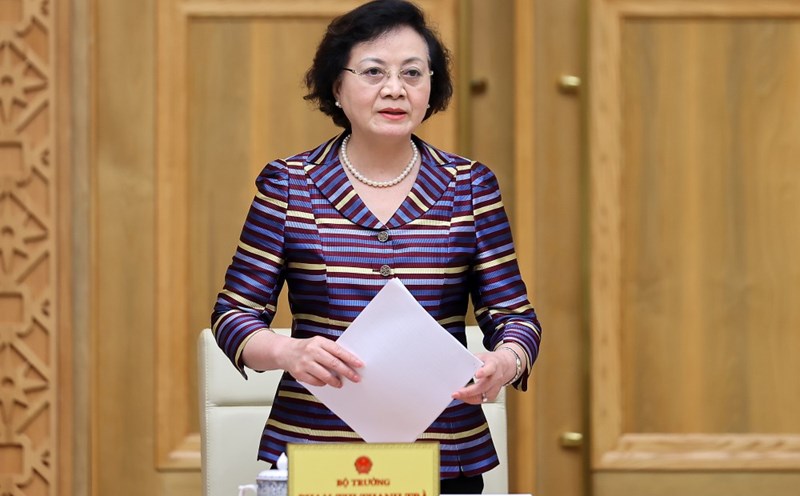According to the report of the Ministry of Home Affairs, as of August 19, the total number of cadres and civil servants who have decided to quit their jobs nationwide is 94,402 people, of which 81,995 people have submitted to competent authorities for funding approval and have been approved (50,345 people have received the money).
It is expected that by the end of August, the number of days off according to Decree No. 178/2021/ND-CP will increase by about 6,000 - 7,000 people. Thus, the number of people quitting their jobs according to the regime prescribed in Decree 178 is estimated at about 100,000 people.
100,000 people quitting their jobs is a huge number and it has "spoken" a lot of information.
First, this figure is the immediate result of streamlining the apparatus. And this result can immediately be converted into a resource - a large amount of money that the budget can save, just counting the monthly payment of salaries and public allowances.
However, this figure also shows another aspect of the situation of excessive and uncontrolled work stoppages, or as Minister of Home Affairs Pham Thi Thanh Tra said at the meeting on assessing the situation after 2 months of operating the 2-level local government, chaired by Prime Minister Pham Minh Chinh on August 23, as "for widespread leave".
If we do not streamline and streamline the apparatus, it will be cumbersome and ineffective, and the budget will almost all be spent on paying salaries for cadres and civil servants. However, if "working is illegal", the consequences will be a lack or no one will work, especially good and familiar employees.
The positive signal is that the Ministry of Home Affairs has seen this and "has instructed agencies and localities to carefully review and properly consider the subjects of policy leave according to regulations, to prevent the situation of widespread leave, while focusing on retaining competent officials to ensure the quality of the team" - as the Minister of Home Affairs said.
Streamlining the payroll is not about reducing as much as possible, but it must be a streamlining process to improve quality, retain dedicated and capable cadres, and at the same time boldly let down weak and stagnant cases.
But keeping good people, in addition to "not allowing time off" must also create an attractive working environment enough for them to want to stick with.
In particular, the arrangement of cadres must be scientific, fair and reasonable. Otherwise, if the situation of livestock officers being experts in education management at the commune level, or places with too much surplus, places with too much shortage of cadres and civil servants, especially communes and wards in remote areas like the current situation of Da Nang and many localities, when there are no vacations, they also find every way to retire.
If this is done, the goal of building a new, streamlined, efficient and effective civil service - grassroots government will soon be completed as desired.












